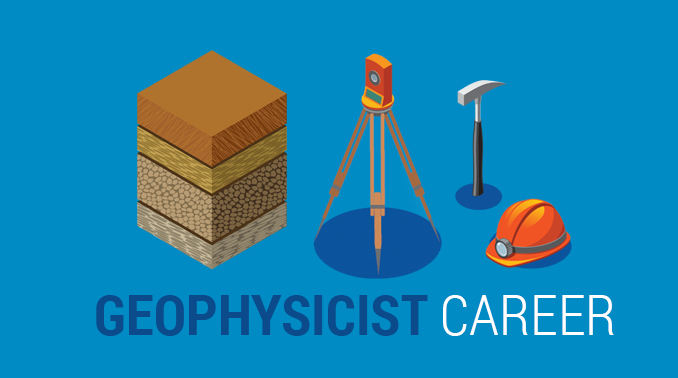All Categories
Featured
Table of Contents
Become An Earthquake Scientist in Canning Vale WA 2021
This work is progressively contracted out, so consultancies provide another source of employment. Consultancy companies differ in size, from really little business to big multinationals. Some consultancies are quite specialised in using specific geophysical strategies or operating in specific places, while others offer a more varied variety of services to their customers.
The extraction of gas from garbage dump websites is another location of work and this might grow in the future. Exploration business might carry out work for construction firms, water business, mining companies and environmental firms, so geophysicists might be utilized in any of these settings. Other employers include: geological surveysgovernment bodies and agenciesuniversities and research study institutes.

Jobs may be listed in the oil and gas sector press. Recruitment is affected by oil price variations and the level of competitors for positions differs depending on this. Careers Days, which cover the full variety of geoscience careers and are normally attended by a number of key market employers, are run by The Geological Society.
Geophysicist - Jobs And Skills Wa in Leeming Oz 2020
A few of the large oil and gas companies provide a complete two-year structured training program across the breadth of geophysics, including the opportunity to experience work in different groups prior to specialising in one area. Your training may consist of work on: existing wellsmagnetic and gravitational possible field information analysisresearchrock analysis. It's more typical for your preliminary training to be provided on the job.

There may be a probationary period during which you work together with an experienced associate. Competency-based appraisals happen regularly in the majority of companies. In smaller sized companies, and for academic posts, there is unlikely to be any official training - you'll be expected to begin work straightaway and get abilities as you go along.
If you work for a smaller company, you might discover that you need to take obligation for organizing and moneying your own development and training. If you have a geology degree, subscription of The Geological Society can be beneficial for networking and for keeping up to date with the industry.
Geophysicist - Job Role - Job Information in Wellard Australia 2021
You may likewise discover it beneficial to join the PESGB (The Petroleum Expedition Society of Great Britain, which has a geophysics unique interest group. After a probationary duration, and when you've gotten some experience, you might progress to senior geophysicist, then group leader and then into a senior role in management.
The ease of movement in between roles depends on the company structure. Research study at Masters or Ph, D level in a subject associated to geophysics or geosciences may aid with your career advancement and development. The employment market within the oil and gas industry is really based on cost and this might affect your chances for profession progression.
For knowledgeable geophysicists, freelance consultancy offers a great path for career development. As a geophysicist, you're most likely to have several tasks throughout your working life.
Geophysicist in Innaloo Western Australia 2023
From geophysics, it's possible to concentrate on seismology (completing more training to become a seismic interpreter) or to move into related locations such as engineering geology or danger prediction.
Choosing what to study in college is a tough choice. Even if you know that your field of interest depends on science, what program of research study is right for you? If you make the choice to major in physical and life sciences and pursue a career as a geophysicist, you're preparing for an interesting and lucrative occupation.
The first step to achieving your goal of becoming a geophysicist is making a degree. Even for entry-level positions in the field of geoscience, you'll need a bachelor's degree (a geophysicist college degree) from an accredited college or university. Some research study positions need candidates to hold master's degrees or even Ph.
Geophysicist: Job Description, Duties And Requirements in Willetton Western Australia 2023
Postgraduate degree are particularly crucial if you prepare to teach at a four-year institution. Geophysicists apply physics concepts and strategies to study the gravitational, magnetic, and electrical fields of the earth. This enhances researchers' understanding of both the planet's interior core and its surface. Geophysicists need to be able to: analyze rocks, photos, and other pieces of data perform research both in the field and in laboratories create maps and charts of their findings compose reports To accomplish all this, students require a specialized education for geophysicist professions.
As specified above, you'll need a bachelor's degree in geoscience or an associated discipline, such as a physical science or a natural science, to land an entry-level job. Trainees can likewise prepare by majoring in topics like: Biology Chemistry Computer science Engineering Mathematics Physics The above geophysicist majors provide a more generalized method to a single clinical discipline, however a lot of programs require students to take one or more geology course.
Table of Contents
Latest Posts
Geophysical And Geotechnical Assessment in Mount Hawthorn Western Australia 2020
Geophysicist Bob Embley: Ocean Exploration Careers in Alexander Heights Oz 2022
Geophysical Surveys: Definition & Methods in Woodlands Western Australia 2021
More
Latest Posts
Geophysical And Geotechnical Assessment in Mount Hawthorn Western Australia 2020
Geophysicist Bob Embley: Ocean Exploration Careers in Alexander Heights Oz 2022
Geophysical Surveys: Definition & Methods in Woodlands Western Australia 2021